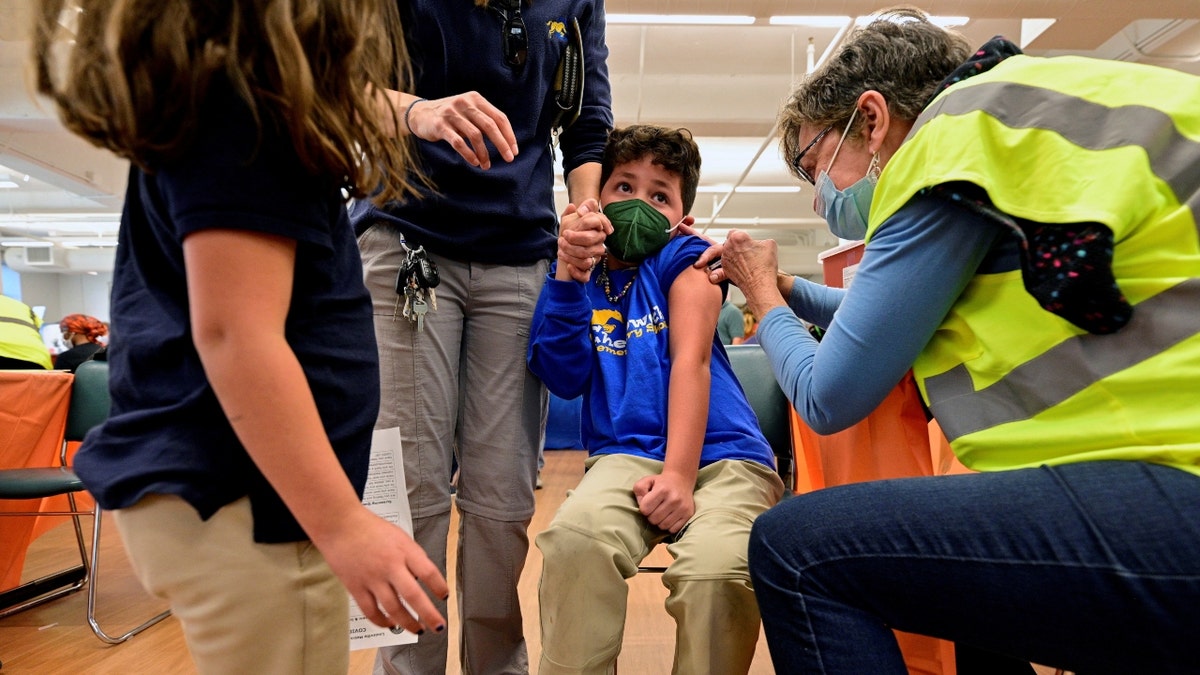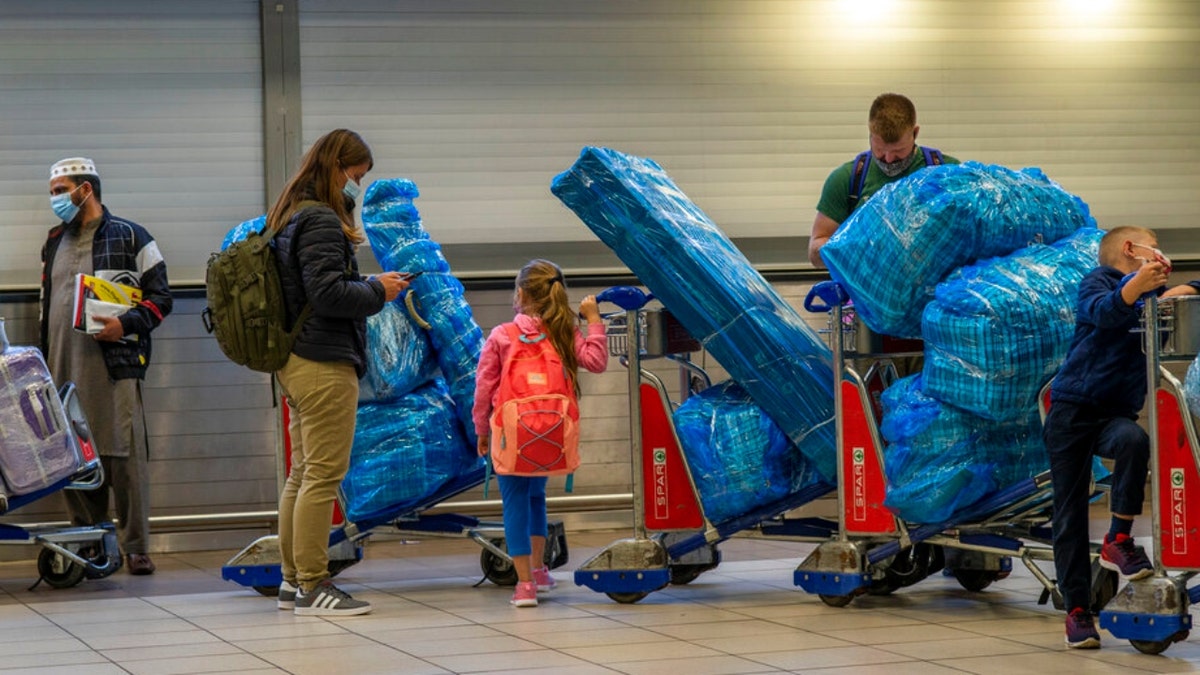Democratic lawmaker says getting vaccinated is a 'patriotic duty'
Rep. John Garamendi, D-Calif., reacts to President Biden restricting travel over the new omicron COVID variant
The South African doctor who first alerted authorities to the presence of the COVID-19 omicron variant reported that it presents "unusual but mild" symptoms.
Dr. Angelique Coetzee, a board member of the South African Medical Association, first noticed otherwise healthy patients demonstrating unusual symptoms on Nov. 18.
"Their symptoms were so different and so mild from those I had treated before," Coetzee told The Telegraph.

A child reacts while receiving a dose of the Pfizer-BioNTech coronavirus disease (COVID-19) vaccine at Smoketown Family Wellness Center in Louisville, Kentucky, U.S., November 8, 2021. REUTERS/Jon Cherry/File Photo
"It presents mild disease with symptoms being sore muscles and tiredness for a day or two not feeling well," Coetzee explained. "So far, we have detected that those infected do not suffer the loss of taste or smell. They might have a slight cough. There are no prominent symptoms. Of those infected some are currently being treated at home."
BIDEN PROMISED TO ‘SHUT DOWN’ COVID, BUT OMICRON VARIANT POSES NEW CHALLENGE FOR ADMIN
Coetzee reported around two dozen of her patients that tested positive for the coronavirus and displayed these new symptoms. She alerted officials to the possibility of a new variant, which the World Health Organization (WHO) on Friday designated the omicron variant.

People lineup to get on an overseas flight at OR Tambo’s airport in Johannesburg, South Africa’. A slew of nations moved to stop air travel from southern Africa on Friday in reaction to news of a new, potentially more transmissible COVID-19 variant omicron that has been detected in South Africa. (AP Photo/Jerome Delay)
Most of the patients were men who reported "feeling so tired," and half of them were unvaccinated. The patients comprised a range of ages and ethnicities.
COVID-19 OMICRON VARIANT: HERE'S WHAT WE KNOW
Coetzee started briefing other African medical associations on Saturday, discussing the variety of symptoms, such as "one very interesting case" of a six-year-old child with a fever and "very high pulse rate."
"What we have to worry about now is that when older, unvaccinated people are infected with the new variant, and if they are not vaccinated, we are going to see many people with a severe [form of the] disease," Coetzee said.
NO CASES OF COVID-19 OMICRON VARIANT IDENTIFIED YET IN US, CDC SAYS
So far, the hospitals are not yet overburdened.
Coetzee’s advisement follows a report by Tulio de Oliveira, the director of South Africa’s Centre for Epidemic Response and Innovation.
Oliveira told reporters the virus has a "very unusual constellation of mutations," most notably 10 variants on a key protein that helps the virus infect humans compared to the delta variant’s two mutations and the beta variant’s three mutations.
He criticized several countries – including the U.S., U.K., South Korea and various countries in Europe – for enacting travel restrictions on South Africa and several other African nations.
CLICK HERE TO GET THE FOX NEWS APP
"The world should provide support to South Africa and Africa and not discriminate or isolate it!" Oliveira tweeted. "By protecting and supporting it, we will protect the world!"









































